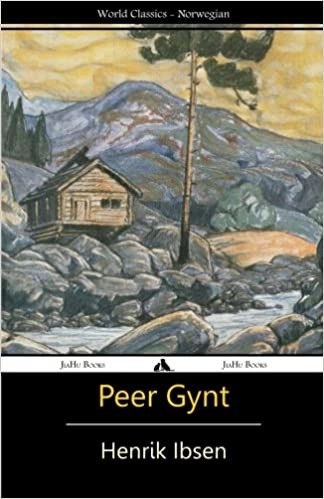Reading Level
What is the reading level of Peer Gynt?
Analysing the books in the series, we estimate that the reading level of Peer Gynt is 6th and 7th grade.
Expert Readability Tests for
Peer Gynt
| Readability Test | Reading Level |
|---|---|
| Flesch Kincaid Scale | Grade 6 |
| SMOG Index | Grade 9 |
| Coleman Liau Index | Grade 7 |
| Dale Chall Readability Score | Grade 7 |
Reading Time
3 hrs 21 mins
How long to read Peer Gynt?
The estimated word count of Peer Gynt is 50,220 words.
A person reading at the average speed of 250 words/min, will finish the book in 3 hrs 21 mins. At a slower speed of 150 words/min, they will finish it in 5 hrs 35 mins. At a faster speed of 450 words/min, they will finish it in 1 hrs 52 mins.
| Peer Gynt - 50,220 words | ||
|---|---|---|
| Reading Speed | Time to Read | |
| Slow | 150 words/min | 5 hrs 35 mins |
| Average | 250 words/min | 3 hrs 21 mins |
| Fast | 450 words/min | 1 hrs 52 mins |
- Authors
-
Henrik Ibsen
More about Peer Gynt
50,220 words
Word Count
for Peer Gynt
166 pages
Pages
5 hours and 24 minutes
Audiobook length
Description
This work has been selected by scholars as being culturally important, and is part of the knowledge base of civilization as we know it. This work was reproduced from the original artifact, and remains as true to the original work as possible. Therefore, you will see the original copyright references, library stamps (as most of these works have been housed in our most important libraries around the world), and other notations in the work.This work is in the public domain in the United States of America, and possibly other nations. Within the United States, you may freely copy and distribute this work, as no entity (individual or corporate) has a copyright on the body of the work.As a reproduction of a historical artifact, this work may contain missing or blurred pages, poor pictures, errant marks, etc. Scholars believe, and we concur, that this work is important enough to be preserved, reproduced, and made generally available to the public. We appreciate your support of the preservation process, and thank you for being an important part of keeping this knowledge alive and relevant.
